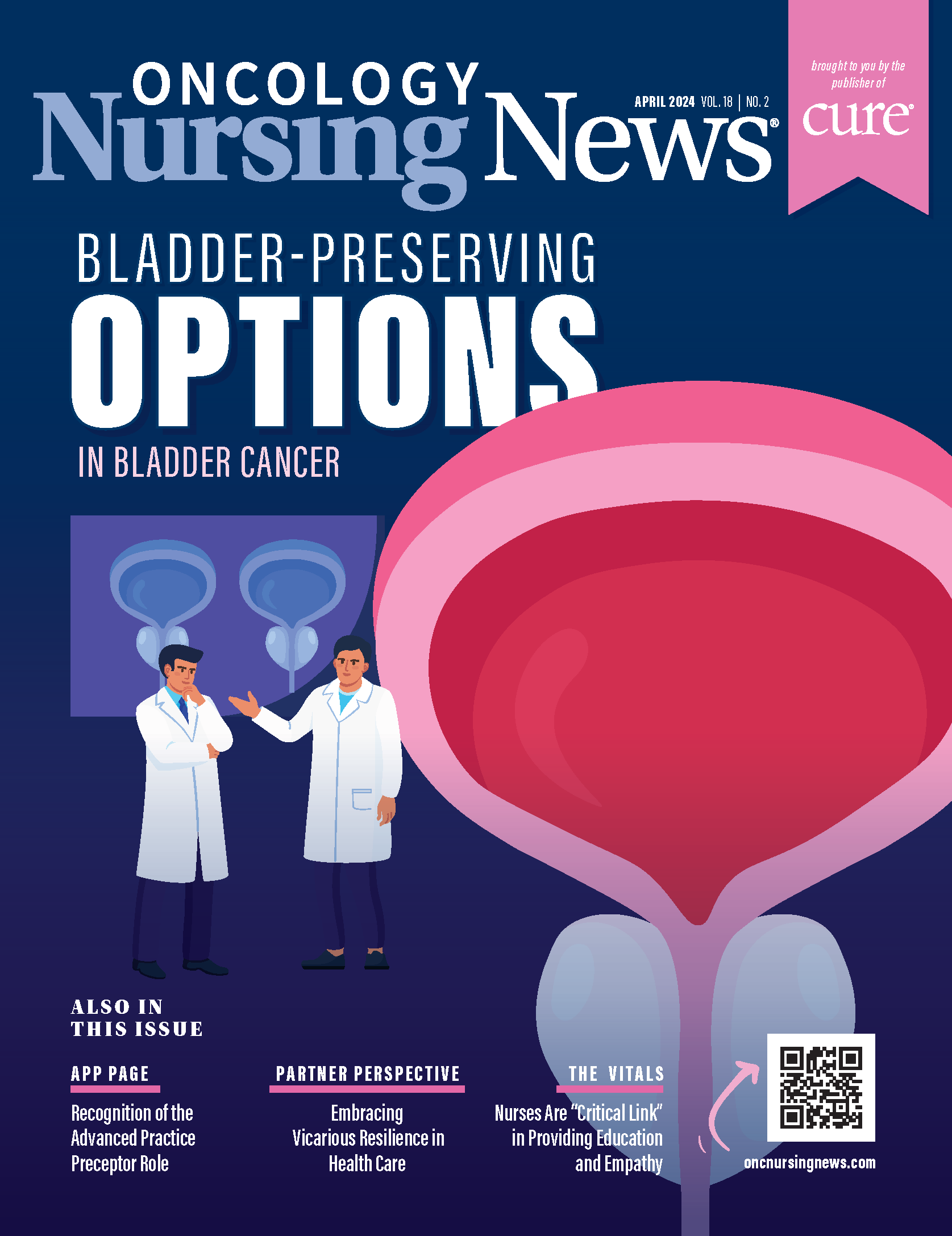Nurses Are “Critical Link” in Providing Patients With Education and Empathy
Oncology nurses provide patients with lung cancer the education and empathy needed to navigate treatment options and adverse event management.
Women doctors smiling together in the hospital: © Laura - stock.adobe.com

Oncology nurses can provide empathy and education as the “critical link” for individuals with lung cancer via patient-centered care, Lisa Carter Bawa, PhD, MPH, APRN, ANP-C, FAAN, explains.
"We think we might know best, but when you really come into a health care encounter with [a mindset of] patient-centered care, you are open to listening to the patient, thinking outside the box [in a way] that might be specific to that patient, and really focusing on what they are dealing with,” said Carter-Bawa, director of the Cancer Prevention Precision Control Institute at the Center for Discovery and Innovation at Hackensack Meridian Health in New Jersey.
“Ultimately, if a patient who’s diagnosed with cancer…is on a specific treatment regimen, if you engage that patient and develop that patient relationship, and you approach it from a perspective of patient-centered care, you’re going to have patients who adhere to their treatment and have better outcomes because they’re following the regimen that they, as well as their clinician, have decided is the best course of action for them,” said Carter-Bawa.
For example, immunotherapies have emerged as a significant treatment option for patients with lung cancer, with such drugs—including the immune checkpoint inhibitors pembrolizumab (Keytruda), atezolizumab (Tecentriq), and nivolumab (Opdivo)—harnessing the body’s immune system to treat the disease. These treatments, in turn, can lead to various adverse effects and these effects, Carter-Bawa said, include fatigue; skin rash; gastrointestinal disturbances; flu-like symptoms such as fever, chills, and muscle pain; inflammation of the lungs; and thyroid dysfunction.
“[These drugs] actually block the interaction between the proteins on the immune cells as well as the cancer cells, which, in turn, lowers the immune system’s response to the cancer. That said, that’s actually where we get the [adverse] effects,” Carter-Bawa explained.
Oncology nurses, Carter-Bawa said, serve as educators and provide comprehensive information about treatment regimens and potential adverse effects to patients and their families. This includes guidance on symptom recognition, when to seek medical care, and strategies for managing adverse effects through dietary adjustments, medication management, and lifestyle modifications.
Moreover, nurses continuously monitor patients throughout their treatment journey, assessing vital signs, reviewing lab results, and actively listening to patients’ concerns to identify any changes or emerging issues. By offering emotional support, nurses empower patients to cope effectively with the challenges they face, fostering a sense of reassurance and resilience.
“I always think of nursing as getting this right, but I think it’s even more prominent now that there’s been an increased emphasis on patient-centered care, which really prioritizes addressing the individual needs, preferences, and goals of the patient and their family,” Carter-Bawa said. “And nurses receive continuing education training…to provide this personalized education specific to these different regimens, as well as support that helps them to tailor [education] to the patient’s specific circumstances, which ultimately has the potential to enhance the quality of life and the quality of symptom management for their patients.”




